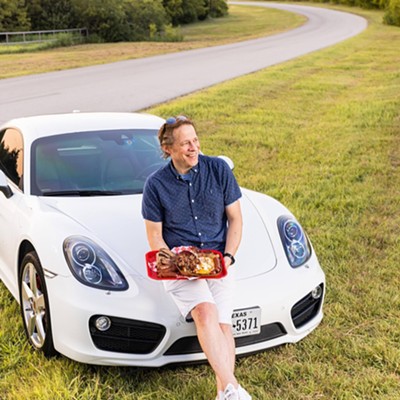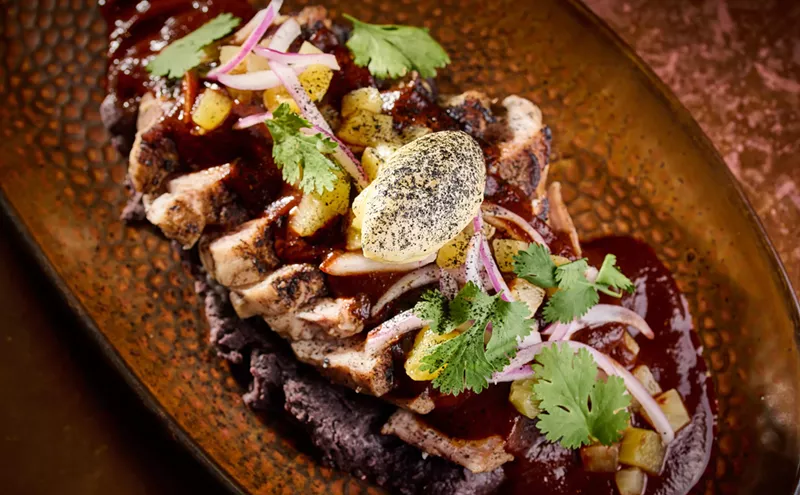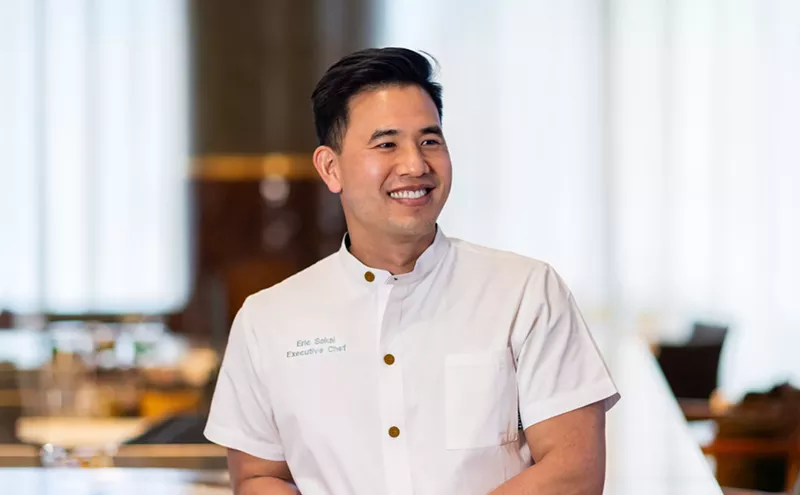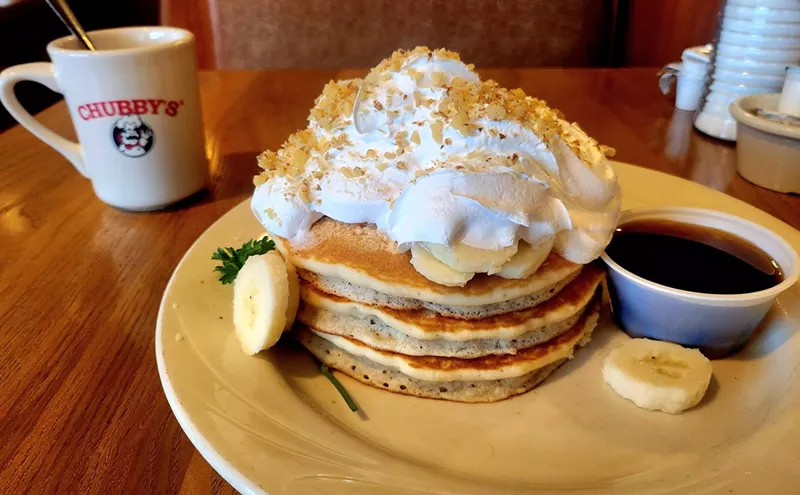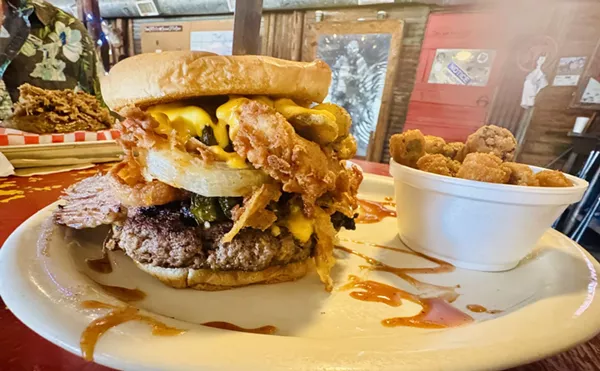There’s a certain amount of bravado that comes naturally to Texans. Two-thirds of our fair state’s residents were born here, and the adage goes that the other third got here as fast as they could. Call it swagger. Call it pride. “Don’t Mess With Texas” isn’t just a bumper sticker; it’s a hard and fast rule to be followed at all times. For proof, watch what happens when you mess with something Texans hold near and dear, like barbecue.
Many regions lay claim to inventing barbecue. Texans may concede that they didn’t come up with the idea, but they’ll certainly argue that they perfected it. It’s all about the meat in Texas; it’s not coated in a sweet sauce like in Kansas City or hidden under a lump of coleslaw like in Memphis, or doused in vinegar like they do in the Carolinas. In the words of Texas Monthly, their 50 best barbecue joints in Texas are ostensibly the 50 best in the world.
Does this mean that we’re unable to enjoy any style of barbecue in DFW other than our own? Should we suffer slings and arrows if we put a little barbecue sauce on our meat? It’s perfectly normal to want the barbecue you eat to be steeped in Texas tradition, but this shouldn’t mean the guy at the table next to you can’t steep a bite of sausage in some sauce without hearing a profanity-laced tirade about “ruining barbecue."
Before we ruin barbecue, a history lesson is in order. The Central Texas style of barbecue traces back to the 1800s, when German and Czech immigrants opened meat markets like those in the Old World. Beef was the primary focus, and smoking meats to prevent spoilage, as well as making sausage from scraps, was common. After the Civil War, Southerners and emancipated slaves who moved to the area recognized the same low and slow cooking styles they were using on pork back home, and a new genre of barbecue took off.
The traditions of these early meat markets continue today, where meats are served on butcher paper and sauce, if any, is included on the side. Until just a few years ago, these meat markets and old-style Central Texas barbecue joints were the domain of the less traveled roads, through towns like Lexington, Lockhart and Taylor.
And then came the boom. A younger crowd of pit masters, highlighted by Austin’s Aaron Franklin, opened their own barbecue joints soaked in the tradition of the Smittys, the Louie Muellers and the Kreuz Markets. Locally, people like Todd David of Cattleack BBQ or Matt Dallman at 18th & Vine left day jobs to pursue the art of smoking meats. And they found a new, willing audience who appreciated the time, effort and history of barbecue. “I love the tradition and romance of barbecue," Dallman says. "Everybody has a story about their favorite spot, a fun memory eating or making barbecue together with friends and family.”
But somewhere in this boom, people got it in their head that Texas' brand of barbecue doesn’t do sauce. “Let’s set the record straight,” says Daniel Vaughn, barbecue editor at Texas Monthly. “There’s one place in Texas that doesn’t serve sauce, and that’s Kreuz Market [in Lockhart]. Even the Kruez in Bryan serves sauce.”
In Vaughn's opinion, barbecue sauce belongs on every plate, as long as it comes on the side, where it's up to the diner to decide whether to use it or not. Many of the newer establishments take this to heart and developed a sauce to use from their beginnings. “We have made our own sauce ever since we sold our own barbecue, even before we opened, when we were just catering,” says Cattleack’s David. “It has always been very important and has been part of our trials and errors from very early on.”
Perhaps watching shows like Barbecue Pitmasters, where Franklin occasionally appeared as a judge, put the idea in our heads that barbecue had to be enjoyed without sauce, just like the competitions on television. Dallman understands that the meat has to shine by itself in competitions, even as KC-style barbecue is known for sauce. “We cook our barbecue to stand on it's own, but we really cook more competition-style barbecue," he says. "You want that judge, or in our case our customers, to have every bite to be perfect, juicy and flavorful.”
But that’s not to say sauce is an afterthought. Dallman spent a lot of time perfecting 18th & Vine’s sauce, which isn’t as sweet as other Kansas City sauces. “It was inspired by sauce from one of my favorite spots to go to growing up in KC, Gates BBQ,” explains Dallman. “It took us quite a while to find the right blend — it has some sweetness, a little zing and a bit of spice.”
The same goes for the sauce at Cattleack, where David put a lot of time into his sauce as well. “I worked real hard for many years to make a sauce you could put on anything and enjoy,” he says. “As I say to customers, our barbecue is so good it does not need sauce, but our sauce is so good, it doesn't need any barbecue.”
So how did we end up so wrong about sauce?
“Sauce serves a lot of great purposes,” Vaughn says. “If the barbecue is bad, it’s sauce to the rescue.” But just because a decent sauce can mask a subpar meat, that’s not to say it can’t add to a good one. “I like sauce. Barbecue sauce tastes really good,” Vaughn says. “I go to a place like Mac’s in Dallas, and I get chopped beef and pour on the sauce.”
Vaughn hypothesizes that, much like diners have preferences for lean or fatty brisket, there are plenty of people on both sides of the sauce debate, with no right or wrong answer. Even at places where the barbecue is consistently good, you’re not going to offend the pit master by partaking of the sauce. In fact, Dallman encourages it.
“Barbecue should be fun," he says, "and I'd hope people would give our sauces a try.”

Audio By Carbonatix
[
{
"name": "GPT - Billboard - Slot Inline - Content - Labeled - No Desktop",
"component": "21721571",
"insertPoint": "2",
"requiredCountToDisplay": "2"
},{
"name": "STN Player - Float - Mobile Only ",
"component": "21861991",
"insertPoint": "2",
"requiredCountToDisplay": "2"
},{
"name": "Editor Picks",
"component": "17105533",
"insertPoint": "4",
"requiredCountToDisplay": "1"
},{
"name": "Inline Links",
"component": "18349797",
"insertPoint": "8th",
"startingPoint": 8,
"requiredCountToDisplay": "7",
"maxInsertions": 25
},{
"name": "GPT - 2x Rectangles Desktop, Tower on Mobile - Labeled",
"component": "22608066",
"insertPoint": "8th",
"startingPoint": 8,
"requiredCountToDisplay": "7",
"maxInsertions": 25
},{
"name": "Inline Links",
"component": "18349797",
"insertPoint": "8th",
"startingPoint": 12,
"requiredCountToDisplay": "11",
"maxInsertions": 25
},{
"name": "GPT - Leaderboard to Tower - Slot Auto-select - Labeled",
"component": "17357520",
"insertPoint": "8th",
"startingPoint": 12,
"requiredCountToDisplay": "11",
"maxInsertions": 25
}
]

